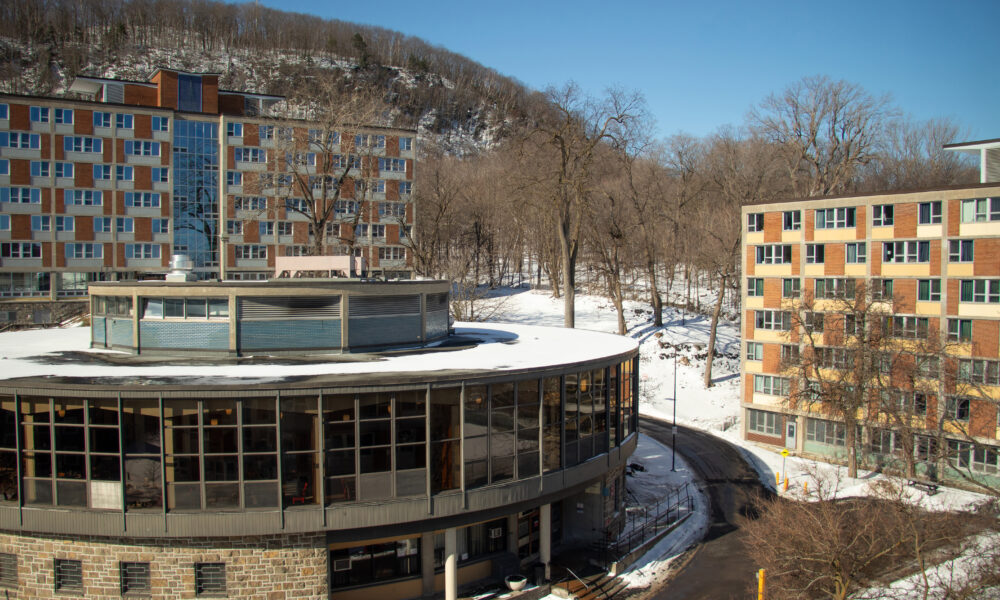On Feb. 15, Daniel Fournier, Associate Director of McGill Residence Life, announced that the Floor Fellow position, a staple of the McGill residence system, would be abolished effective May 2024. This callous decision leaves McGill as the only major Canadian university without Floor Fellows or a comparable position; it will harm Floor Fellows who are losing employment and every student living in residence. Furthermore, this decision bears concerning implications for McGill’s future. The abolition of Floor Fellows will no doubt herald more cuts to student services, and more broadly, it signals the decline of McGill as a major global institution.
McGill proclaims itself as “one of the leading universities in the world” while it cuts essential services for its students. Floor Fellows are necessary for student life at McGill—they are regularly the first to respond to instances of sexual assault, medical emergencies, and suicidal ideation. McGill alleges that their services—namely the Wellness Hub and Office for Sexual Violence Response, Support, & Education (OSVRSE)—overlap with the responsibilities of Floor Fellows, thereby making the position redundant. This conclusion fundamentally misconstrues the purpose of this important role. Floor Fellows are not therapists, doctors, or counsellors—nor should they be. Floor Fellows are peer-support staff that form the crucial link between McGill’s bureaucracy and first-year students. The Wellness Hub and OSVRSE can be inaccessible for the average student, as both are critically understaffed and suffer from extremely long wait times. While Floor Fellows alone cannot rectify this dysfunction, they play a critical role in supporting their students when they cannot immediately access the university’s services.
Floor Fellows serve as critical peer support for university students at their most vulnerable during their first year of university. Most of these students are living independently for the first time and many are new to Montreal. Although Residence Life offers some workshops for first-year students, this is far from a substitute for the one-on-one, personalized help that Floor Fellows offer. Floor Fellows establish a personal relationship with their students, and therefore many students feel comfortable disclosing traumatic experiences with them that they wouldn’t feel comfortable sharing with unfamiliar adults. Although McGill purports to be increasing security personnel for safety within residences, security can not be equated to peers, and will no doubt struggle to make a meaningful connection with the residents they police.
McGill is not simply creating a less-exciting residence—they are creating a dangerous environment wherein predators can thrive and students are disincentivized to report sexual violence when it inevitably occurs. Moreover, in a climate where 95 per cent of Canadian university students reported being overwhelmed, 84 per cent are suffering from anxiety, and 80 per cent are lonely or depressed, the decision to cut back on mental health support staff is shocking. Given the mental health crisis throughout Canadian universities and Canada as a whole, McGill must invest more in the mental health of its students, not strip them.
Incoming first-year students and their families will pay more and receive less in residence without Floor Fellows. Tuition, rent, and meal plan expenses are all expected to increase next year, both as a result of tuition hikes and other financial difficulties. With this in mind, is McGill truly competitive with other Canadian universities? As attending McGill becomes increasingly financially unattainable and the services provided by the university decline, the name recognition and prestige McGill boasts will plummet. For those set on McGill, living in residence is a less attractive option than ever, with less peer support, increasingly inaccessible resources, and skyrocketing costs. Living off-campus, rather than in residence, is not only more affordable but now provides an equally supportive environment to McGill residences.
McGill can still reaffirm its commitment to its students and engage its Floor Fellows in good faith dialogue regarding the future of their position. Whether they will enter discussion, or continue down the path of institutional decline, remains to be seen.









